
Let’s face it, vampire stories never go out of style, and on TV, they’ve found the perfect place to keep evolving. You’ve probably had your vampire phase, maybe with Buffy, the Salvatore brothers, or that vampire with the French accent who’s always going on about love and destruction. The truth is, we’ve all been hooked by one of these stories at some point – and it’s not a fluke. Vampires just work. They can be monsters, antiheroes, full-on villains, or weirdos just trying to pay rent in the 21st century. That kind of range is exactly why these shows stick around and still hit, even when it feels like the genre’s been done to death.
With that in mind, here are the 10 best vampire TV shows of all time. How well do they really work within the genre? They’re not necessarily the most popular, but the ones that really made their mark.
1) Buffy the Vampire Slayer
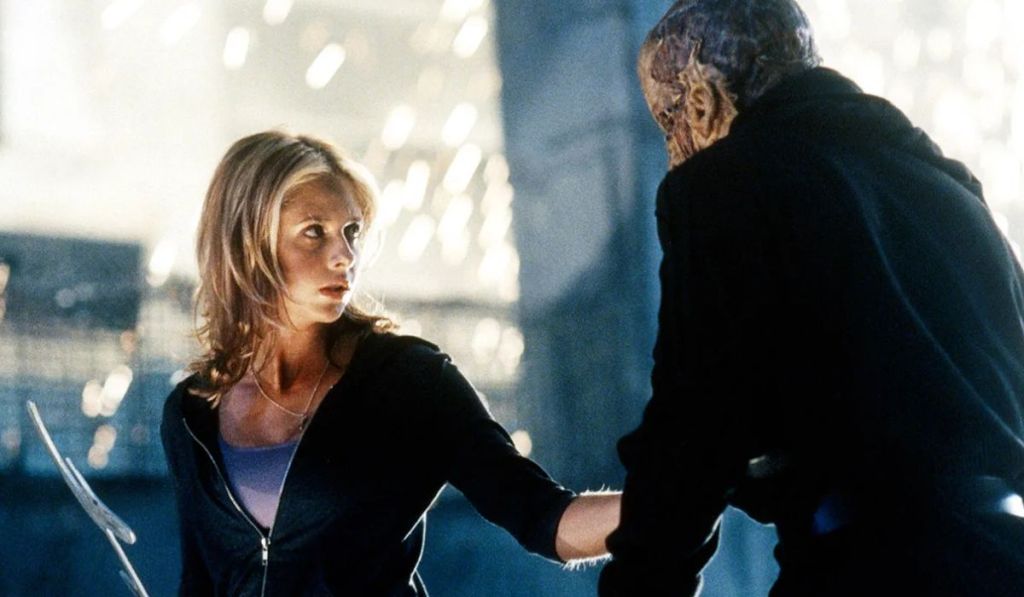
It’s impossible to talk about vampire shows without bringing up Buffy the Vampire Slayer, since beyond reshaping how the genre was portrayed on TV, it also raised the bar for character development in supernatural stories. The plot follows Buffy (Sarah Michelle Gellar), a teenager who finds out she’s the “Chosen One” meant to fight vampires and demons, all while juggling her messy personal life. On paper, it sounds like a pretty standard premise, but the real strength of the series is how it balances the supernatural and the everyday in a genuinely mature and grounded way.
This is about cultural impact. Buffy the Vampire Slayer stayed relevant for decades (and still is, since there’s a reboot in the works). It built its own language, gained a fiercely loyal fan base over time, and influenced pretty much every teen supernatural show that came after. Sure, a few episodes look dated now, but the character arcs still hold up if you rewatch it today. No other series has blended horror, humor, romance, and strong thematic storytelling quite like this one.
2) Interview with the Vampire
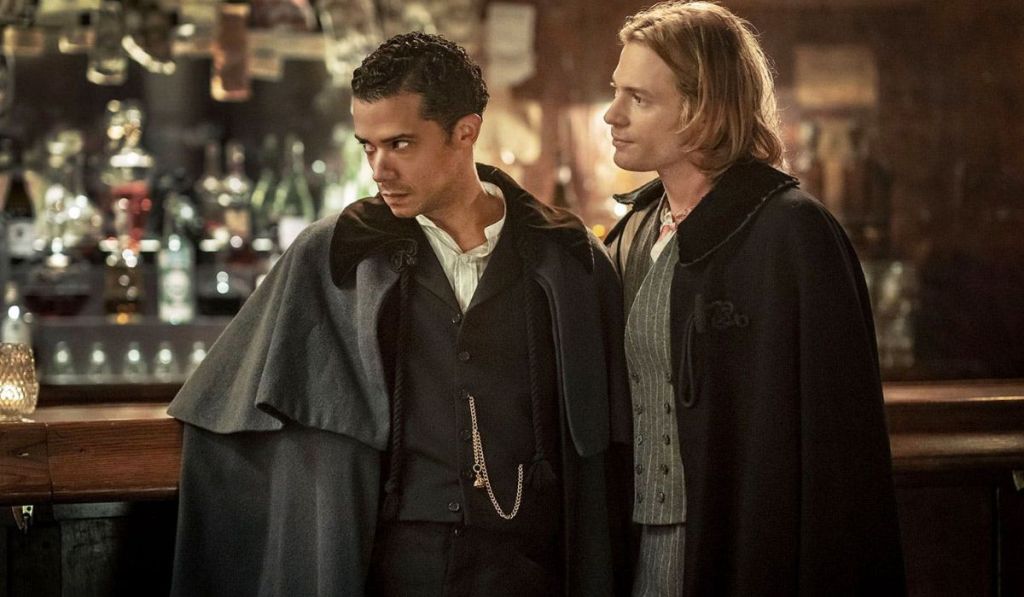
A lesson in how to adapt a book. AMC’s version of Interview with the Vampire surprised even people who already knew the story or the original movie. The show updates the plot to the 20th century, introducing Louis (Jacob Anderson) as a black, queer vampire, who tells his story to journalist Daniel Molloy (Eric Bogosian), revisiting his messy, toxic relationship with Lestat (Sam Reid). It’s visually stunning, and the performances are next-level. The series doesn’t just adapt Anne Rice’s work; it elevates it, treating the characters as fully tragic and layered in a way you rarely see in supernatural stories.
More than just an adaptation, this is a straight-up psychological drama packed with emotional tension and heavy queer subtext. The pace is slower than other shows in the genre, but it works because it gives space to really dig into the characters and the weight of their choices. Instead of going all in on blood and immortality, Interview with the Vampire leans into subjects like trauma, regret, and power – and it pulls it off with a kind of maturity you don’t usually get in vampire TV.
3) The Vampire Diaries
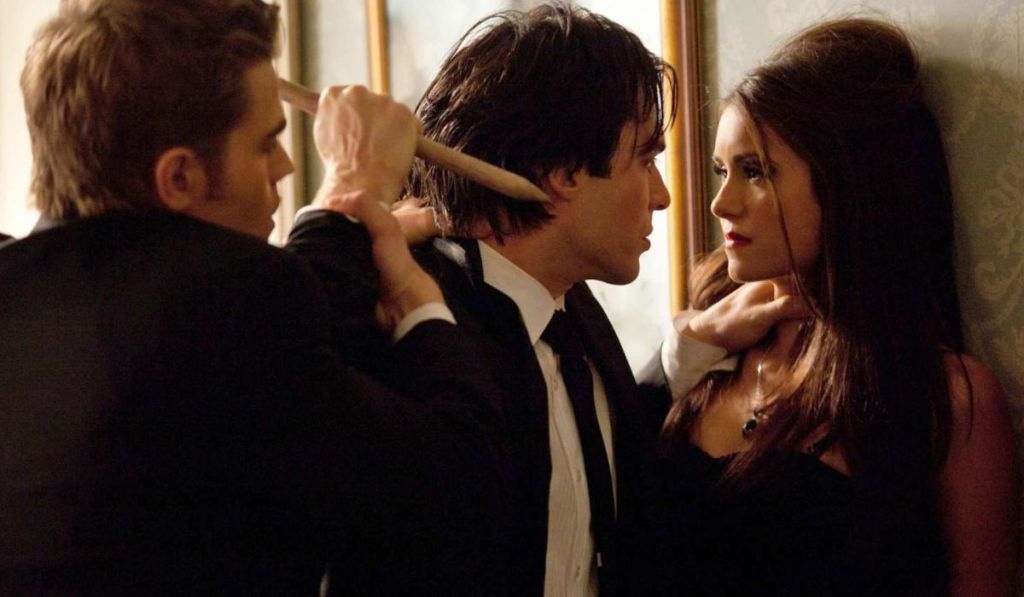
The Vampire Diaries never tried to reinvent the vampire genre, but it knew exactly who it was talking to: young viewers craving romance, mythology, and nonstop plot twists. It kicks off when Elena Gilbert (Nina Dobrev) falls for Stefan Salvatore (Paul Wesley), not knowing he and his brother Damon (Ian Somerhalder) are centuries-old vampires with a violent past that’s tangled up in the town’s history. From there, things escalate fast, with werewolves, witches, and doppelgängers piling on like it’s no big deal – and honestly, the show embraces the chaos in a way that works.
Yes, there are definitely clichés along the way, but the series nailed it when it came to building charismatic characters and delivering emotional punches. Damon’s arc, in particular, is a highlight, starting out as a reckless villain and turning into one of the most compelling characters. The writing didn’t always hold up, but the energy, pacing, and chemistry between the cast kept people invested. The Vampire Diaries knew what it wanted to be, and that’s exactly what it delivered: addictive, unapologetic supernatural drama.
4) The Originals
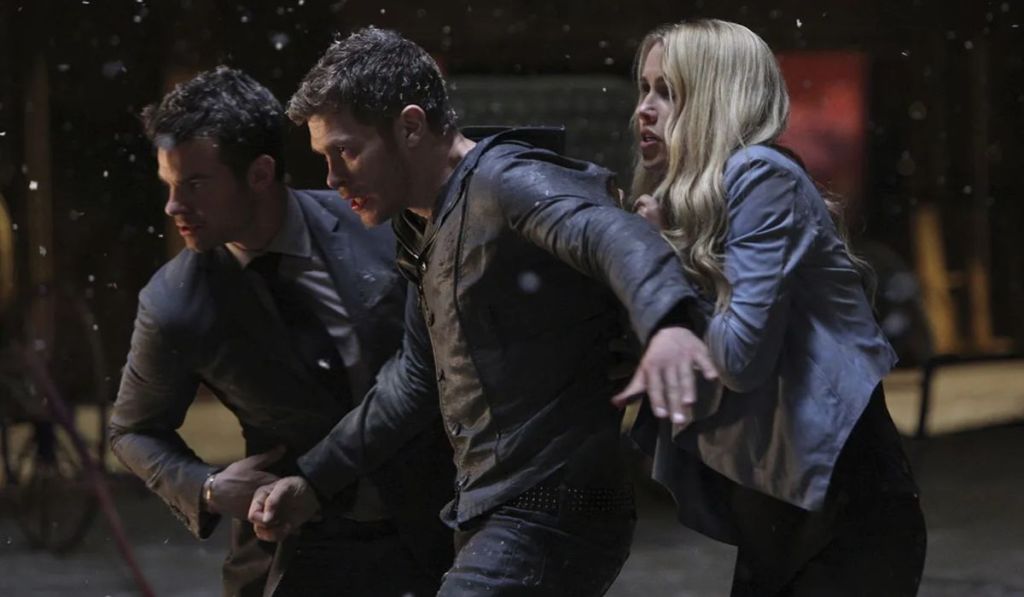
You know that spinoff that somehow ends up better than the original? That’s exactly what happened with The Originals, which, for a lot of fans, outshined The Vampire Diaries in more than a few ways. Centered on the original vampires (mainly Klaus Mikaelson (Joseph Morgan) and his chaotic family), the show dives into more grown-up topics like fatherhood, legacy, and the messy nature of power. Set in New Orleans, the plot follows Klaus trying to reclaim control of the city while dealing with witches, werewolves, and plenty of internal drama. The gothic vibe and darker tone work way better than the teen energy of its predecessor.
However, what really makes this one click is how well the characters are written. Klaus isn’t just your typical impulsive antihero; he’s a damaged guy trying to do better, mostly for the sake of his daughter. Plus, the show avoids the overload of plot twists that dragged TVD down at times, opting for tighter story arcs and conflicts that actually get the development they deserve. There’s still some melodrama (this is a vampire show, after all), but the emotional weight hits harder and feels more grounded. The Originals proved that the TVD universe could grow up.
5) True Blood
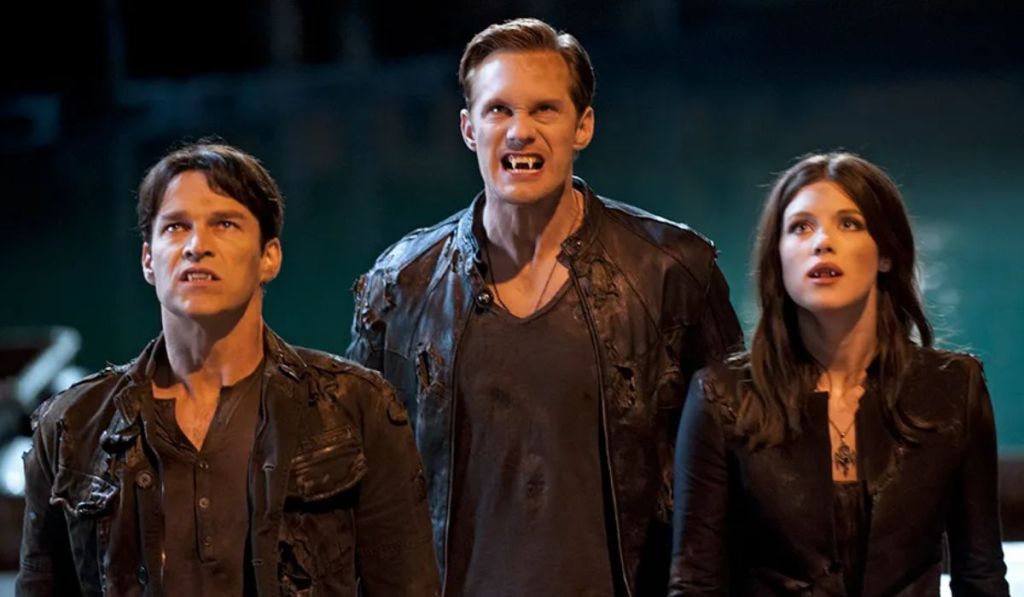
True Blood had its ups and downs, but in the end, it pulled it off and earned cult classic status along the way. The series kicked off with a bold concept: blending vampires with pointed social issues in a Southern U.S. town full of prejudice and strict religious beliefs. In this world, vampires live openly among humans thanks to a synthetic blood called “Tru Blood,” and we follow Sookie Stackhouse (Anna Paquin), a telepathic waitress who gets involved with the vampire Bill (Stephen Moyer). It was a gutsy idea, full of potential, and at the time, it filled a gap for adult audiences craving something darker, sexier, and more political in a vampire story.
The problem is, True Blood eventually lost control of its own chaos. It leaned way too hard into the absurd, stacking up wild plotlines and way too many side characters until the narrative basically unraveled. Still, it kept a loyal fanbase thanks to how strong its first few seasons were – and let’s be honest, characters like Eric (Alexander Skarsgård) had serious staying power. Whether you loved it or got tired of the madness, True Blood deserves a spot here for how bold it was and for how much it shook up the genre at the time.
6) What We Do in the Shadows
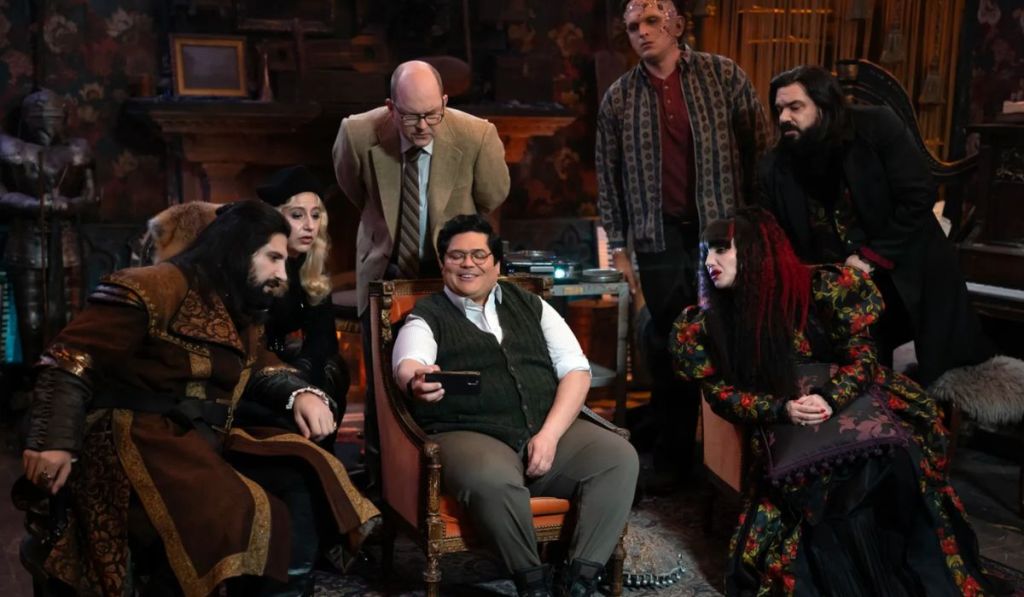
Very few shows manage to poke fun at vampires as well as What We Do in the Shadows does. This one’s a full-on comedy that follows four vampires living together in Staten Island, dealing with everyday nonsense like paying bills, dealing with weird moments around humans, and constantly trying to one-up each other. The premise is totally ridiculous, but that’s exactly why it works. The mockumentary format elevates the tone, and the cast’s comedic timing, especially from Matt Berry and Kayvan Novak, takes it to another level.
But here is about how it flips every vampire trope on its head without losing love for the genre. It’s based on the movie of the same name, and that affection for the source material shows in the way the show builds its bizarre little world. Even with the over-the-top jokes, there’s real consistency in how the characters are written and how the universe works. What We Do in the Shadows makes it clear there’s still plenty of room for creativity in vampire stories, because sometimes, being hilarious is just as effective as being terrifying.
7) Castlevania
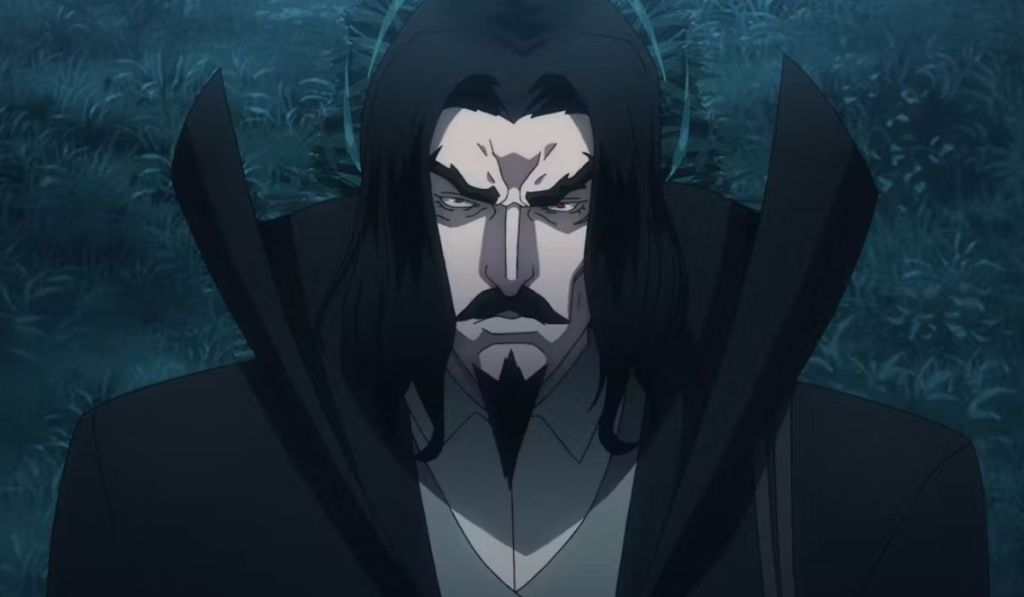
There might be other animated shows about vampires out there, but none of them hit as hard as Castlevania. It’s one of the rare cases where vampirism is treated with actual weight: brutal, serious, and emotionally grounded. Based on the Konami video games, the story follows Trevor Belmont, Sypha Belnades, and Alucard in their mission to stop Dracula after he wages war on humanity out of grief. What sets the series apart right off the bat is how well it blends brutal action with sharp dialogue, all inside a mythological world that feels coherent and earned (something a lot of vampire shows fumble).
The real difference, though, comes from the depth given to its villains, especially Dracula. He’s not just evil for the sake of it; he’s broken by loss and rage, which adds weight and complexity to everything happening around him. The show also doesn’t sugarcoat its content, it leans into violence, trauma, and hard choices without feeling preachy or pulling punches. Castlevania demonstrated that adult animation can tell vampire stories that are just as sophisticated than live-action shows (if not more).
8) Midnight Mass
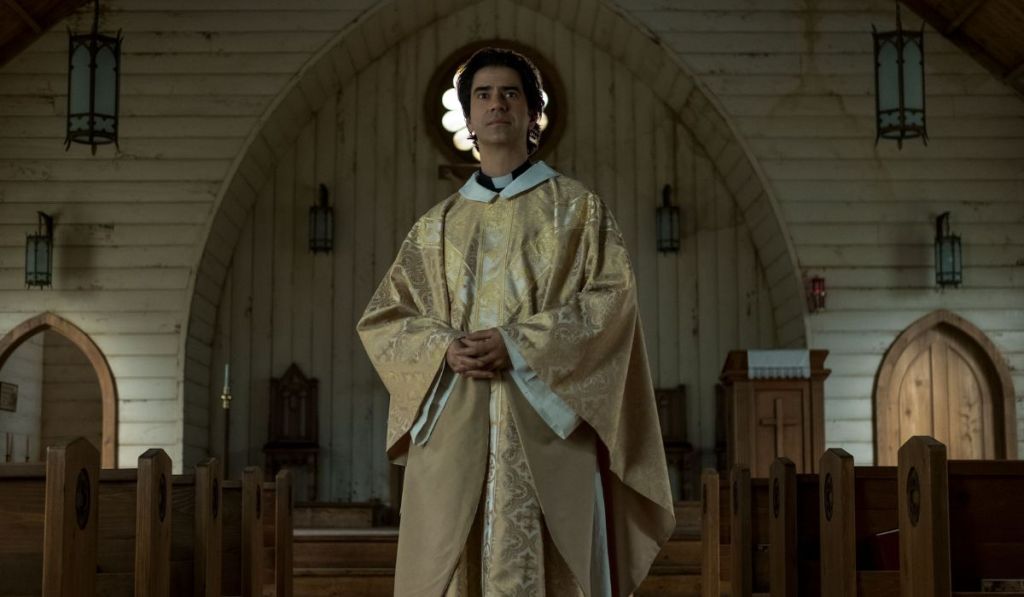
This may be a spoiler, but yes, Midnight Mass has a lot to do with vampires. It’s probably the most cerebral series on this list too. Created by Mike Flanagan, the plot centers on a small, isolated community that starts witnessing “miracles” after a new priest shows up – while completely unaware that there’s a vampiric entity behind it all. But this isn’t really about vampires; it’s about how blind faith, guilt, and isolation shape people. The creature may not take the spotlight, but it’s the quiet force steering everything off course.
Midnight Mass definitely isn’t for everyone. It moves slowly and leans heavily on long monologues. But if you’re willing to sit with it, you’ll find a story that’s mature, thought-provoking, and emotionally loaded. It digs into death, redemption, and belief in a way that’s rarely seen in genre shows. The minimalist style only adds to the oppressive vibe. You won’t get the usual vampire drama here, but it’s easily one of the most intense and uncomfortably human takes on the myth.
9) The Strain

In an attempt to tackle the vampire genre from a more grounded angle, The Strain goes for something biological and apocalyptic, treating vampirism as a viral outbreak sweeping through New York. Created by Guillermo del Toro, the series mixes body horror, medical thriller, and supernatural conspiracy all in one – and that blend alone makes it stand out. Here, vampires are parasitic and terrifying, more like zombies than seductive immortals, and that twist gives the show a refreshing edge.
The Strain has its uneven moments, but even when the pacing wavers, it maintains a richly detailed mythology and grotesque visuals that deliver for fans of graphic horror. Character development works well enough, but the real hook is the suffocating atmosphere and the sense of creeping doom. It’s not as mainstream or iconic as some other shows on this list, but it earns its spot by daring to reimagine the vampire narrative in a way that’s darker, more visceral, and surprisingly timely.
10) Dark Shadows
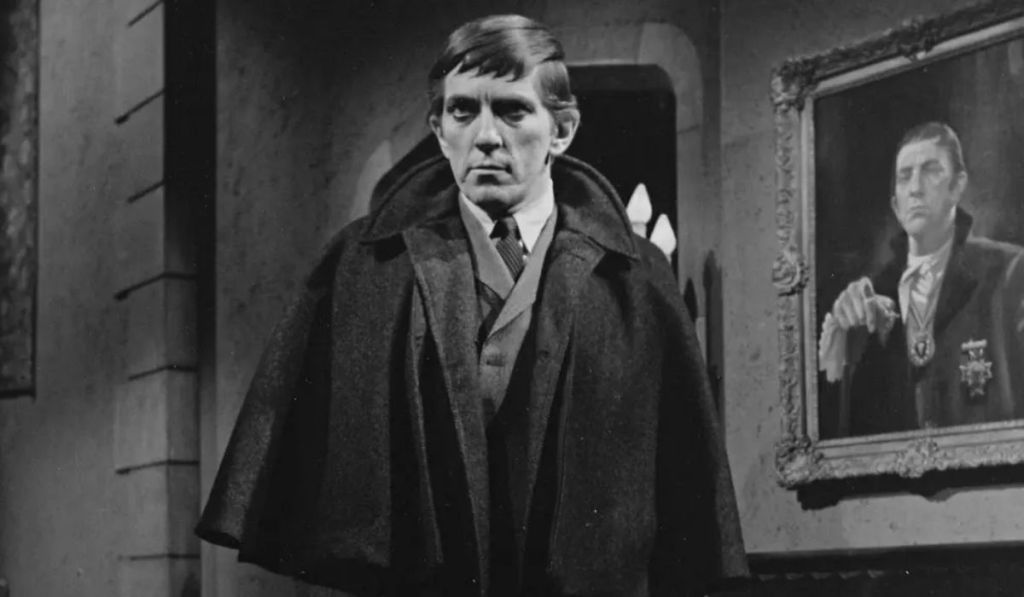
A classic among classics, Dark Shadows shows how a low-budget TV show can still leave a big mark. Airing in the ’60s and ’70s, this gothic soap opera introduced Barnabas Collins (yes, the same vampire Tim Burton later made famous) and was one of the first productions to mix supernatural romance, time travel, and horror. The story revolves around the Collins family and their dark secrets in a creepy mansion.
Watching it now, it’s obvious the show feels pretty dated: slow pacing, cheesy effects, and over-the-top acting. But you can’t ignore its historical importance. Dark Shadows opened the door for vampire stories to hit mainstream TV with serialized storytelling and a loyal fan base. Even with all its quirks, its influence on the genre is huge, and that’s why it still deserves a spot among the most important vampire shows ever made. No question about it.
The post 10 Best Vampire TV Shows of All-Time appeared first on ComicBook.com.

